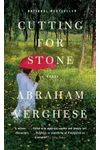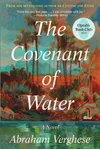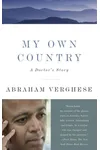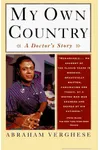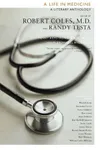Picture a physician who weaves tales as skillfully as he heals—meet Abraham Verghese! Born in Ethiopia to Indian parents, this Stanford professor and bestselling author blends medicine and storytelling with a rare empathy. His novels, like Cutting for Stone and The Covenant of Water, have captivated readers worldwide, earning him the National Humanities Medal and a spot in literary hearts.
Verghese’s life is a tapestry of cultures and callings. From his early days as a doctor treating AIDS patients in rural America to his role as a champion of bedside medicine, he’s a storyteller who finds humanity in every heartbeat. Let’s dive into his extraordinary journey!
The Making of Abraham Verghese
Born in 1955 in Addis Ababa, Ethiopia, to Orthodox Christian parents from Kerala, India, Abraham Verghese grew up surrounded by books and the vibrant stories of his heritage. His parents, both teachers, nurtured his love for learning. Political unrest in Ethiopia interrupted his medical studies, leading him to complete his training at Madras Medical College in India. Arriving in the U.S. as a young doctor, he worked as a hospital orderly, witnessing the raw realities of patient care that would shape his writing.
In the 1980s, Verghese faced the AIDS epidemic head-on in rural Tennessee, an experience that humbled him and deepened his focus on healing over curing. Seeking to process these intense moments, he earned an MFA at the Iowa Writers’ Workshop, blending his medical expertise with a passion for storytelling.
Abraham Verghese’s Unforgettable Stories
Verghese’s literary career shines through his four bestselling books, each a testament to his ability to intertwine medicine, culture, and human connection. His debut, My Own Country (1994), is a poignant memoir about his time caring for AIDS patients in Tennessee. It captures the stigma and humanity of a rural epidemic, earning critical acclaim and a film adaptation.
The Tennis Partner (1998), another memoir, explores friendship and loss through Verghese’s bond with a medical resident battling addiction. His first novel, Cutting for Stone (2009), is a sweeping saga of twin brothers in Ethiopia, steeped in medical detail and emotional depth. It spent over two years on the New York Times bestseller list. His latest, The Covenant of Water (2023), traces three generations of a Kerala family haunted by mysterious drownings. Inspired by his mother’s life, this Oprah’s Book Club pick is a lyrical epic of love and loss.
Verghese’s style is vivid and compassionate, blending precise medical knowledge with lush, character-driven narratives. His themes—empathy, heritage, and the fragility of life—resonate across cultures, making his work both universal and deeply personal.
Why Abraham Verghese Matters
Verghese’s impact stretches beyond the page. As a Stanford professor, he founded the Presence program, advocating for the human connection in medicine at a time when technology often overshadows the patient. His Stanford 25 initiative teaches essential physical exam skills, reinforcing the value of touch and observation. His writings, infused with this philosophy, remind us that stories heal as much as medicine does.
Honored with the National Humanities Medal in 2015 and a Guggenheim Fellowship in 2023, Verghese bridges literature and healthcare, inspiring doctors and readers alike. His ability to capture the human condition makes him a vital voice in a tech-driven world.
About Abraham Verghese
- Born: 1955 in Addis Ababa, Ethiopia
- Key Works: My Own Country, The Tennis Partner, Cutting for Stone, The Covenant of Water
- Awards: National Humanities Medal (2015), Heinz Award (2014), Guggenheim Fellowship (2023)
- Fun Fact: He co-hosts the Medscape podcast Medicine and the Machine with Eric Topol.
Snag The Covenant of Water or Cutting for Stone and dive into Abraham Verghese’s soul-stirring blend of medicine and storytelling!
